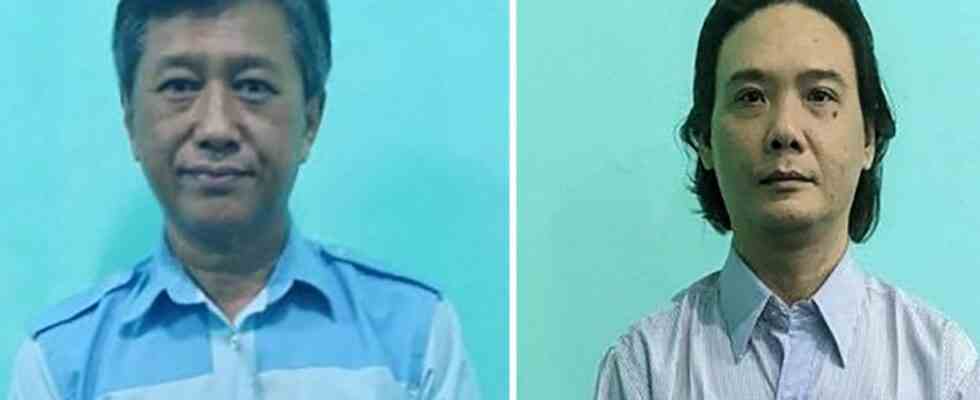These are not the first murders in Myanmar since the military took power again on the night of February 1 last year. But these are the first official executions in Myanmar since the 1980s, and they mean for all people in the country that they have been catapulted back into the darkest of times. On Monday, state media, i.e. those controlled by the junta, reported that four democratic activists had been executed for helping to carry out “acts of terrorism”. After a decade of democratic opening that gave reason for hope, even if the military had never completely relinquished power.
The activists are said to have supported the armed resistance against the junta and were tried behind closed doors in January. There are now more than 300 militias in the country, referred to as “PDFs” or “People’s Defense Forces”. Most are very small groups, no more than ten women and men, who practice using sticks instead of guns or make bazookas to counter the more than 400,000-strong military.
Many young people have fled to areas not controlled by the military
The junta initially bloodily crushed mass protests in the cities. Young people in particular have fled to areas that the military does not control. They try to get money for the PDFs from there or have taken up arms themselves. The National Unity Government (NUG), Myanmar’s underground alternative government, which continues to lead jailed Nobel laureate Aung San Suu Kyi as its elected head of government, condemned the junta’s executions. “We are very sad,” said a statement by NUG spokesman U Kyaw Zaw, which was transmitted to the Reuters news agency. “The world community should punish their cruelty.”
Among those executed are prominent Myanmar democracy activist Kyaw Min Yu, 53, and hip-hop artist Phyo Zeya Thaw, 41. The other two men were named Hla Myo Aung and Aung Thura Zaw. Phyo Zeya Thaw’s wife told Reuters that she was not informed of her husband’s execution. Previous executions in Myanmar have been by hanging, in which case the method of execution has not yet been disclosed.
The junta faces the problem of not being able to consolidate its power after the coup. In addition to the “Ethnic Armed Organizations” in some states, which had never submitted to the military, resistance to the PDFs continues to grow. The morale of the soldiers who have been fighting their own people for more than a year is falling. According to the NUG, more than 10,000 soldiers have already deserted and just as many police officers are refusing to work. The executions are intended to send a signal to everyone in the country that sympathizing with PDFs or other resistance organizations or supporting them with donations is enough to forfeit your life.
The executions were immediately condemned internationally, and the United Nations described them as “a heinous attempt to instill fear in the population”. Hun Sen, prime minister of Cambodia, which currently chairs the Asean association, wrote in June to the junta leader, General Min Aung Hlaing, appealing for the sentences not to be carried out. Even in the alliance of Southeast Asian countries, the military leadership in Myanmar is now isolated. The junta, in turn, has described the foreign comments as “reckless and meddling”.
Amnesty International reports war crimes in Karenni State
Just last week, Amnesty International published a report on new war crimes in Karenni State (also known as Kayah State), where the military has laid landmines on a massive scale. These include M14 mines, which typically blast off the victim’s foot at the ankle, and MM-2, which sever entire legs. Both mine types are made in Myanmar itself.
“The use of landmines by the military in Myanmar is despicable and cruel,” Amnesty International’s Matt Wells said in his statement. “At a time when the world has overwhelmingly banned these seemingly indiscriminate weapons, the military has placed them in courtyards, homes and even stairwells.” At least eight landmines were laid in St. Matthew’s Church in Daw Ngay Khu village in Hpruso municipality during fighting in the area. The soldiers burned down the church and the priest’s house as they were forced to withdraw.
Due to the constant and growing resistance of the population, the soldiers are less and less able to distinguish between armed men and civilians, between activists and militias. Anyone opposed to the junta is in mortal danger. So basically every woman and every man in Myanmar who wants democracy.

